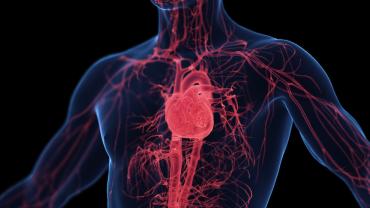
Clinical research has linked cardiovascular health with antioxidative status, cellular health, and a healthy inflammatory response. Certain micronutrients, such as selenium and coenzyme Q10 (CoQ10), have been shown to help promote antioxidative status and cellular health. Research indicates they may also help maintain cardiovascular health.
Selenium is a trace mineral that has been shown to support antioxidative status and many aspects of cardiovascular health. Selenoenzymes, such as glutathione peroxidase and cytosolic thioredoxin reductase, help support the body’s ability to protect against oxidative damage. Deficiencies in selenium levels have been associated with the incidence of certain cardiovascular diseases. Supplementation with selenium has been shown to help support total antioxidant capacity, glutathione levels, and lipid metabolism.
CoQ10 is also known as ubiquinone due to its extensive presence within the human body. It helps support cell membrane stability and the body’s response to oxidative stress. It also plays a critical role in cellular energy production and helps stabilize calcium-dependent channels. It has been studied extensively in the clinical setting for its potential to support cardiovascular health. Long-term studies have indicated that CoQ10 supplementation may help mitigate certain adverse cardiovascular events. Other clinical studies have observed improvements in parameters related to heart health in the presence of CoQ10.
A recently published prospective randomized, double-blind, placebo-controlled trial by Dunning and colleagues explored the potential role of certain micronutrients in support of cardiovascular health. This study included data from 221 older adults. The treatment arm consisted of 200 mg of CoQ10 and 200 µg of selenium daily for 48 months. Quality of life and parameters related to antioxidative status and cardiovascular health were assessed. In particular, the amounts of albumin-adjusted serum-free thiols were evaluated throughout points in the study. Free thiols have been used as a biomarker for cardiovascular-related health.
Significant improvements in cardiovascular mortality risk and parameters related to systemic oxidative stress were observed at the study terminus. Improvements in serum-free thiol amounts were reported and were correlated inversely with cardiovascular-related risk. In particular, improvements related to antioxidative status and free thiol levels were observed to be greater in older individuals with lower selenium levels at baseline. Study strengths included the population size; drawbacks included relative homogeneity of age and ethnicity. Also, the researchers noted that most participants live in areas with low selenium soil levels.
While more studies are needed before clinical conclusions can be made, evidence suggests that certain micronutrients, including selenium and CoQ10, may help support cardiovascular function. Dietary sources of selenium include Brazil nuts, organ meats, certain fish, grains, and dairy products. Meat, fish, nuts, seeds, fruits, vegetables, eggs, and dairy products are dietary sources of CoQ10.
By Dr. C. Ambrose, ND, MAT